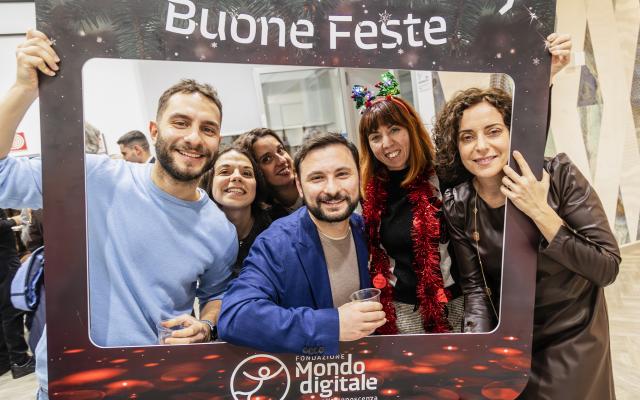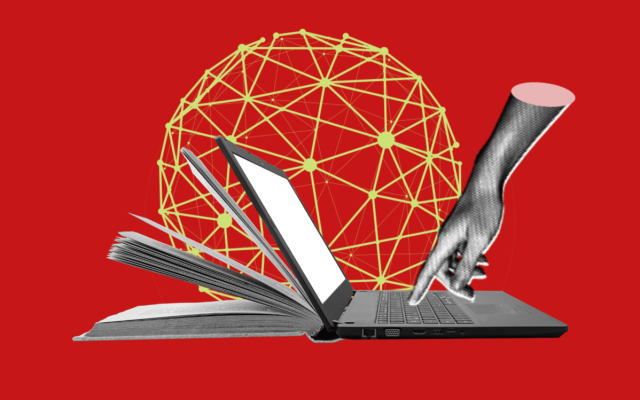Maria Grazia Russo is a Professor of Art History at the Liceo Linguistico Innocenzo XII in Anzio. She has a degree in architecture, loves computer science and has an art history teaching certification for high schools and technology for junior high schools. She is an AutoCAD expert, has an ECDL certification and became an MIE expert in August 2020. Moreover, she was a digital team member, a webmaster and taught technology and computer science at a junior high school. She uses video editing, augmented reality and on-line collaborative platforms to create and share didactic material. She has recently developed various cross-disciplinary projects such as “Physical and Mathematical Strolls in Art and Reality” and "Innov@Didattica: Crowd Dreaming Youth Co-create Innovation."
This is the 38th instalment of “Our School” Professors. As usual, we share a short self-presentation video and then the interview with researcher Ilaria Gaudiello, who coordinates the works of the open source community of professors and educators.
INTERVIEW
Maria Grazia, as a humanities professor, what can you tell us about the impact of the “Our School” Community on your didactic activities?
I learned about this community thanks to a colleague, and it gave me the opportunity to meet professors from other schools with whom to share ideas and courses. Developing new strategies to hold the students’ attention and drive their curiosity has always been my main objective. Even if ideas arise based on the needs and abilities of the students, keeping in contact with creative teachers who are happy to experiment, is something that enriches me and drives me towards new projects. Sharing our experiences can lead to great benefits, both for us and the students. As teachers, we have the duty and the honour to cultivate new minds. This means that we have to stimulate students with innovative ideas and projects to make our lessons interesting, to stimulate the students’ curiosity and drive them to study.
What does “inclusive didactic innovation” mean to you and why are digital tools essential for this?
I believe that inclusive didactic innovation is the way to identify strategies and methods that will allow students to access different forms of knowledge based on their initial conditions, so that they may achieve educational success. I have been teaching for about twenty years now and I believe teaching is about involvement. One must interest all students, independently of their issues, by adopting inclusive digital practices. I have been interested in digital tools applied to pedagogy since I was at university. Today, the support of technology is essential to my didactic activities, both in terms of preparing materials and to transmit this knowledge. Smartphones have allowed me to share content and virtual experiences with my students, thereby also promoting a constructive use of these devices.
The “Our School” Community continues to expand and interest other professors. What message would you give to the newcomers?
First, I would applaud their choice to share, when I often see colleagues who aim to outperform everyone else. We are both learners and teachers, day in and day out; we learn from our colleagues and from our students, who are our greatest source of inspiration. The “Our School” Community gives us the opportunity to meet, exchange ideas and identify new strategies. It’s important to fully exploit this precious opportunity.



